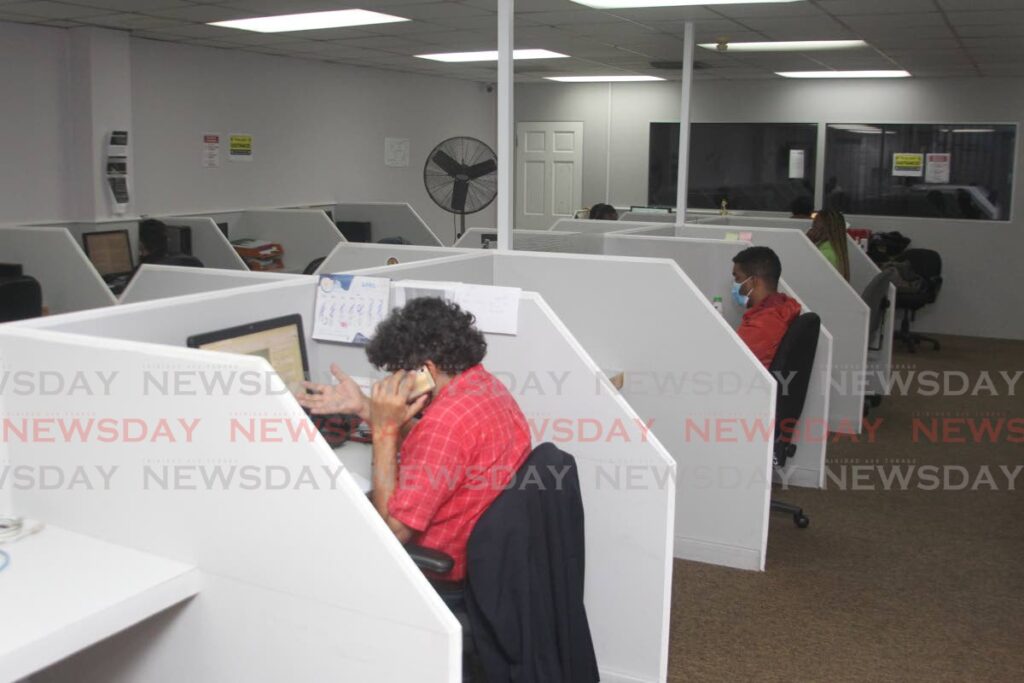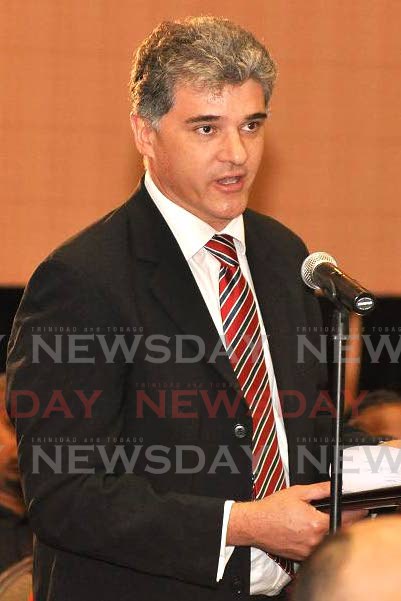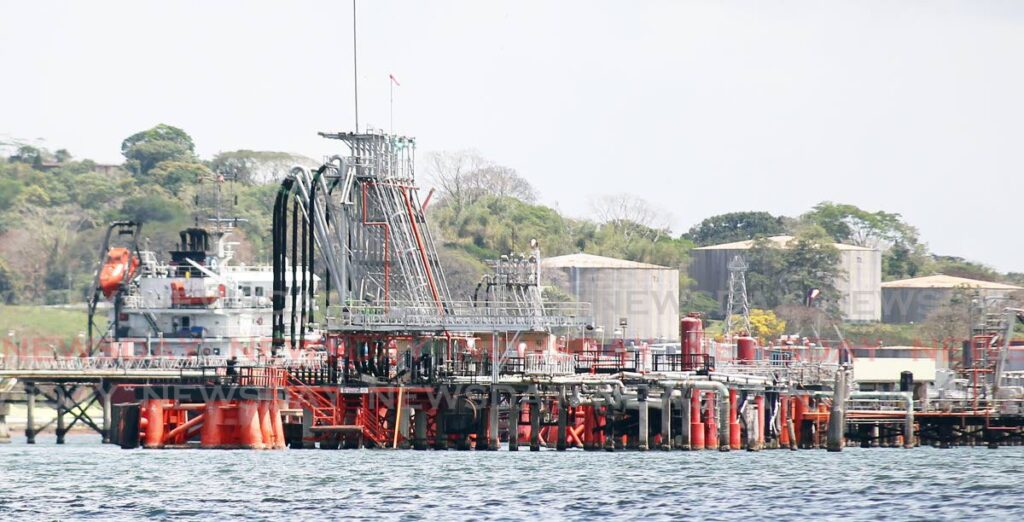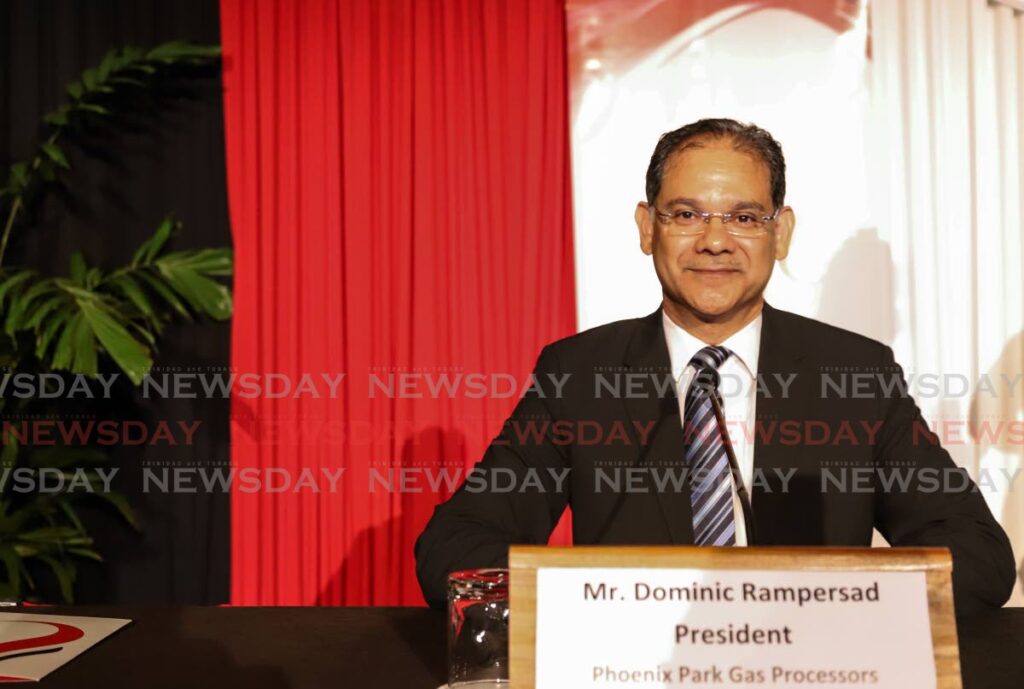HSE in a pandemic: Making workplaces safe and sound

In the energy industry health, safety and environment (HSE) workers are, in many cases, the difference between a safe, incident-free working day and possibly a fatal accident at the job site.
HSE officers are trained to utilise a collection of tools, systems and processes that help them to avoid health issues and injuries. These HSE officers are also designated to protect the environment on behalf of a company and ensure that it continues progressing toward a net-zero carbon footprint thus adding to the worldwide commitment to reduce carbon emissions.
Over the past two years, HSE officers were put on the front lines because of covid19. HSE officers guided companies on several return-to-work policies, health and safety policies and even mental health policies had to be developed to ensure employees were in a safe and healthy environment.
They were also called into action to develop parameters for employees working remotely from home and ensuring that when they do return to the workplace employees would be coming to a safe place.
Through HSE officers and HSE-guided practices companies like Phoenix Park Gas Processors Ltd can boast of achieving what is called “quad-zero” – zero employee recordables, zero contractor employee recordables, zero responsible vehicular accidents and zero recordable environmental incidents in 2021.
Now more than ever the role of HSE in the energy sector is of the highest priority.
Keeping people safe is everyone’s job
HSE officers have one main goal, which is to keep people safe.
The 2004 OSH Act, amended in 2006 focuses on promoting the safety health and welfare of employees in industrial establishments. The act makes it a requirement for employers to ensure, so far as it is reasonably practicable, the safety, health and welfare at work of all its employers.
Section 15 stipulates that government will make regulations to provide for the appointment of safety representatives. The act mandates that every employer consult a safety representative in the making and sustenance of arrangements which enable the employer and workers to co-operate effectively in promoting the development of measures to ensure employees’ safety.
It was also stipulated in section 16 that a safety committee be established for a workplace with at least 20 workers.
Energy Chamber CEO Dr Thackwray Driver described the role of the HSE department as an internal adviser to the organisation and to design, implement and verify safe-work controls.
But that task is not just for one department. Dana Wyatt-John, health, safety, environment and quality officer at Peterson Logistics told Newsday that the best HSE systems are the ones where all parties – including staff, management and HSE officers – are involved.
“It is a common misconception that health and safety is the sole responsibility of the HSE. If that is the approach, then it will not work,” she said. “It has to be that the organisation as a whole promotes a certain culture and has certain processes in place that are worked together by teams. Even if HSE puts forth a plan it has to be that we have the necessary inputs and we have the support of all the various partners within the business. If leaders of a business don’t understand that then I don’t see how they could maintain a positive HSE culture or workspace.”
Driver added that it was the overall company leadership who had the responsibility of implementing HSE policies and departments implementing the work are also responsible for the safety of their area of operations. Developing a culture for health and safety, and data on national safety policies are some of the biggest challenges for HSE officers, Driver said.

“The national safety culture lags the culture within the energy industry, meaning that extra effort is needed to induct new entrants into the culture of the industry. The lack of reliable and comprehensive national data also hampers the profession.”
Driver said HSE officers are trained in a wide range of courses and have a wide cross-section of qualifications, but there is a minimum requirement of being a certified HSE officer to work in the energy industry.
“There are many different professional short courses or seminars on a variety of different HSE topics as well as longer-term qualifications such as certificate and diploma courses,” he said.
The range of topics includes basic health and safety training; accident investigation; root cause analysis; hazard identification and risk assessment; introduction to ergonomics; understanding of the Occupational, Safety and Health Act; the Institution of OSH (a chartered body for the management of OSH professionals); OSH management system lead implementer and lead auditor; floating, production, storage and off-loading (FPSO) and oil rig safety management.
The chamber also provides computer-based awareness training.
“The most popular course among our clientèle has been the safety awareness training,” he said.
Driver said in the 2021-2022 financial year, 245 people completed the training programme. He said the training provides a comprehensive overview of overall HSE areas.
The chamber also administers a safe to work (STOW) programme on behalf of 23 major operator companies in the energy industry, which is a certification programme for contractors’ HSE management systems.
“These are the contractors and service companies who are employed by the major operating companies and they are required to develop policies and procedures to show supporting evidence that they are implemented in a number of areas,” Driver said.
He said one important area is HSE competency where companies are required to provide evidence that their staff are adequately trained in defined areas such as hazardous communication and ensure that they have the competence to safely carry out the work.
Wyatt-John said coming out of covid19, people, on the whole, have become more aware of HSE in terms of what they are exposed to. She added that people within the workspace are now more vocal about HSE issues.

“Coming out of the pandemic people within the workspace understand the risks that they may be affected by and are able to communicate with employers how they may feel in terms of the controls in place.”
Work from home, mental health HSE policies
Employers have also become more aware of the issues surrounding HSE because of the pandemic. Employers have had to roll out work-from-home policies and maintain productivity and good mental health during lockdowns and closures. These tasks were achieved with the help and guidance of HSE professionals. Thanks to the pandemic, employers have generally increased how companies perceived the value of HSE guidance.
Driver told Newsday that coming out of the pandemic there have been many policies that have been developed and implemented that cover a range of issues including remote worker policies, the transmission of workplace diseases, mental health awareness, returning to the office, safe travel abroad and business continuity.
PPGPL president Dominic Rampersad told Newsday in a conversation at NGL’s latest media update last Wednesday that not only is a safe and healthy physical working environment necessary but people must also have good mental health to maintain productivity.
“We adjusted our work practices,” Rampersad said. “We recognised that mental health is not only about trying to find out how our employees are feeling, it is about trying to create an environment where people are comfortable.”

He gave one example, explaining that employees were encouraged not to send e-mails after 5 pm unless it is an emergency.
He also added that, especially for remote workers, there were yoga sessions broadcast on Zoom.
“With managing mental health, you have the formal things that you do but respecting people's private time and allowing them to disconnect had a great effect,” Rampersad said.
He said working from home was a benefit to the mental health aspects of dealing with covid19. Coming out of the pandemic, he said, the policy may remain.
“Even as we are coming out of covid19 we say to employees that if they find themselves to be more productive from home it makes no sense to sit down in traffic.”
“Contact your supervisor and do whatever works best for you. As a result one worker recently told me it was the first time they were able to get their son to school. We don’t see it as a productivity issue.”
General Secretary of the National Trade Union Centre (Natuc) Michael Annisette lauded energy companies on the energy sector’s HSE management policies.
“Most of the companies are foreign companies, therefore their rigidity as it relates to HSE in the workplace is laudable. The standards that were put in place and continue to be put in place is something that we in TT must take a page from, given recent issues.”
Unions: Always be prepared
While most energy companies can be commended for their development of health and safety protocols, Annisette said, in light of recent incidents resulting in the deaths of at least nine people for the year in workplace accidents, businesses should not only have policies in place but they should be prepared to act at a moment’s notice.

On February 25, Paria Fuel Trading Company reported a tragedy involving a five-member commercial diving team doing maintenance on the No. 36 Sealine Riser on Berth 6 in Pointe-a-Pierre. Four men perished after they were sucked into the 30-inch pipeline.
One man, Christopher Boodram, was rescued.
It took five days to recover the bodies of Fyzal Kurban, Kazim Ali Jr, Rishi Nagassar and Yusuf Henry.
In another incident a Vincentian vessel, the MV Fair Chance capsized on April 2 in the Bocas after it left the Port of Port of Spain with a cargo of steel and other goods. Two crew members were rescued by a passing vessel but the captain of the vessel, Dexter Chance, and crew members Devon Celestine, Eric Calliste, Owen Prescott and Quincy Baptiste were missing.
The boat was eventually towed to TT waters and divers searched the vessel. On April 7, Prescott's body was found. On Easter Monday, three more bodies were recovered. Chance's body has not yet been recovered.
Annisette said clearly something went wrong in both these incidents and while a commission of enquiry has been appointed to investigate the Paria incident one of the questions that should be asked is why weren’t there quicker responses put in place in the event of a such an accident.
“If there were policies in place and a standard practice in terms of rescuing and recovering people why didn’t we have the necessary standby crew, equipment and so on to address emergencies?”
He added that deep-sea diving and welding is one of the most dangerous jobs in the world and as such there should be attention and commitment to ensure that all measures are put in place in that industry as well as others.
Annisette said there should be better policies put in place when treating unvaccinated workers, adding that people should not be forced or coerced to get vaccinated to keep their jobs or be allowed to have one.
“It will be unfair to use a vaccination status as a condition for employment,” Annisette said. “The government did not implement that policy and you needed legislation to fundamentally change workers' liberty and rights. But that is what some companies are doing.”
Wyatt-John said her company’s stance is that people cannot be forced to be vaccinated but vaccination is still regarded as the best way to combat covid19.
“Within our organisation, we have not mandated vaccination. What we are guided by is legislation and the client we are there to support. Based on the position of the government we do not stipulate that unless it is a requirement specifically set out by our client.”

Comments
"HSE in a pandemic: Making workplaces safe and sound"